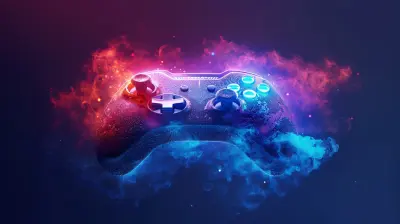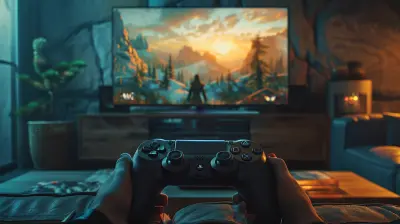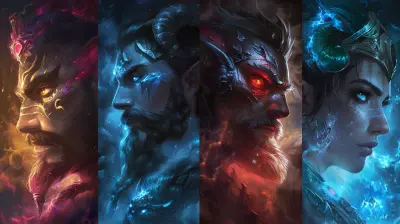Taking a Look at the Rise of Game Preservation Movements
25 August 2025
Have you ever tried to revisit a video game from your childhood, only to discover it’s gone? Lost in the abyss of outdated hardware, abandoned digital storefronts, or broken discs? It’s tragic, right? Now imagine that this isn't just your favorite game but a whole generation of games—wiped from existence. This is where game preservation movements come in, picking up the torch to ensure our gaming history isn't forgotten.
In an industry so obsessed with the next big thing, why are so many people rallying to save old games? Let’s take a closer look at how game preservation movements are rising to the challenge of keeping gaming’s past alive.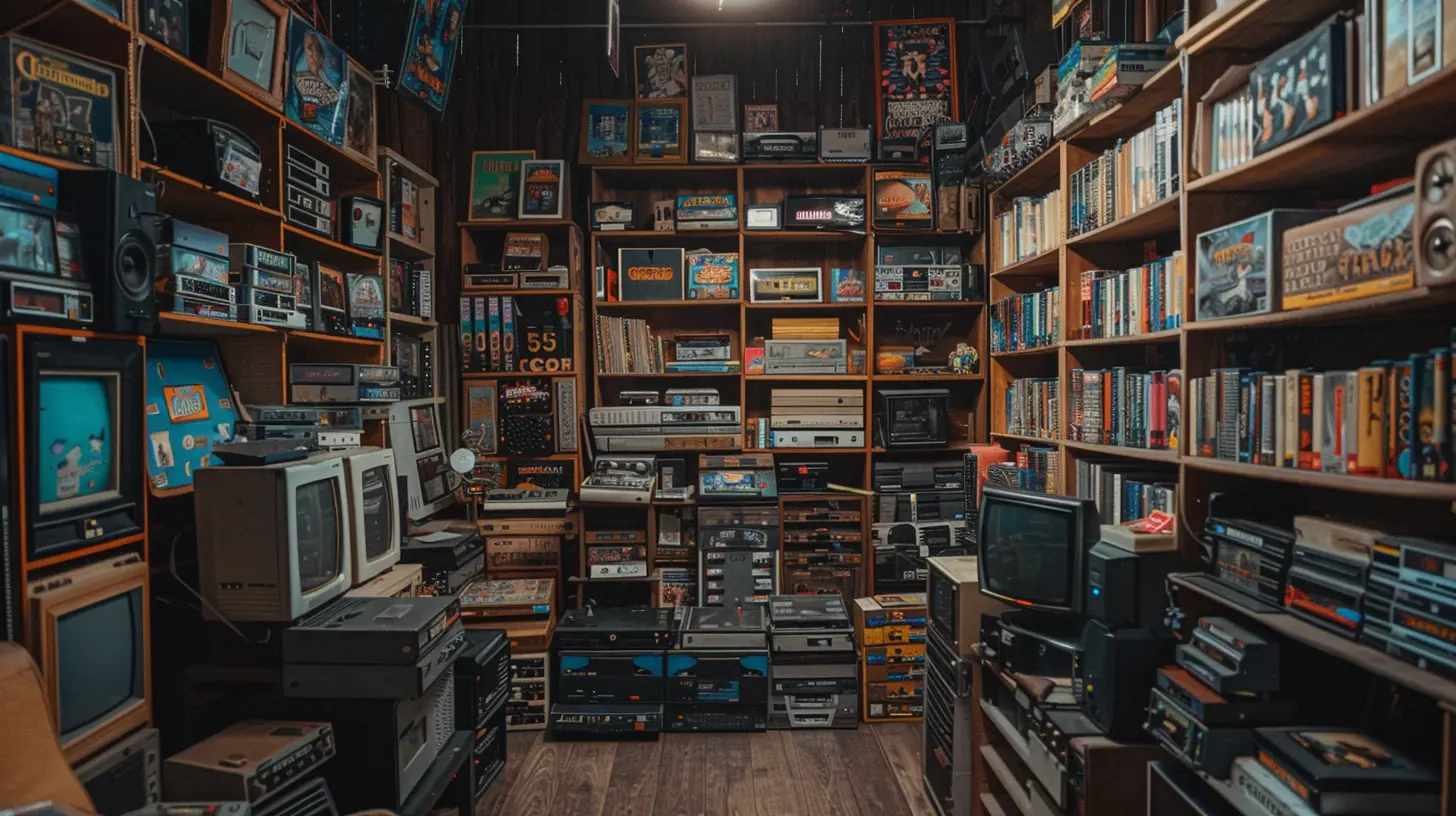
What Is Game Preservation, and Why Does It Matter?
Before we dive into the movement itself, let’s establish what game preservation even means. At its core, game preservation is all about ensuring video games remain accessible and playable for future generations. Think of it like saving classic films or literature—except, instead of dusty books or old reels, we're dealing with digital files, cartridges, and discs that don’t age gracefully.Why does this matter? Well, imagine if someone told you Shakespeare’s plays no longer existed or The Beatles' music couldn’t be listened to anymore. Video games are just as much a part of cultural history as those works! They tell stories, showcase technological advancements, and reflect the society in which they were created. Losing them would be like throwing away a piece of history.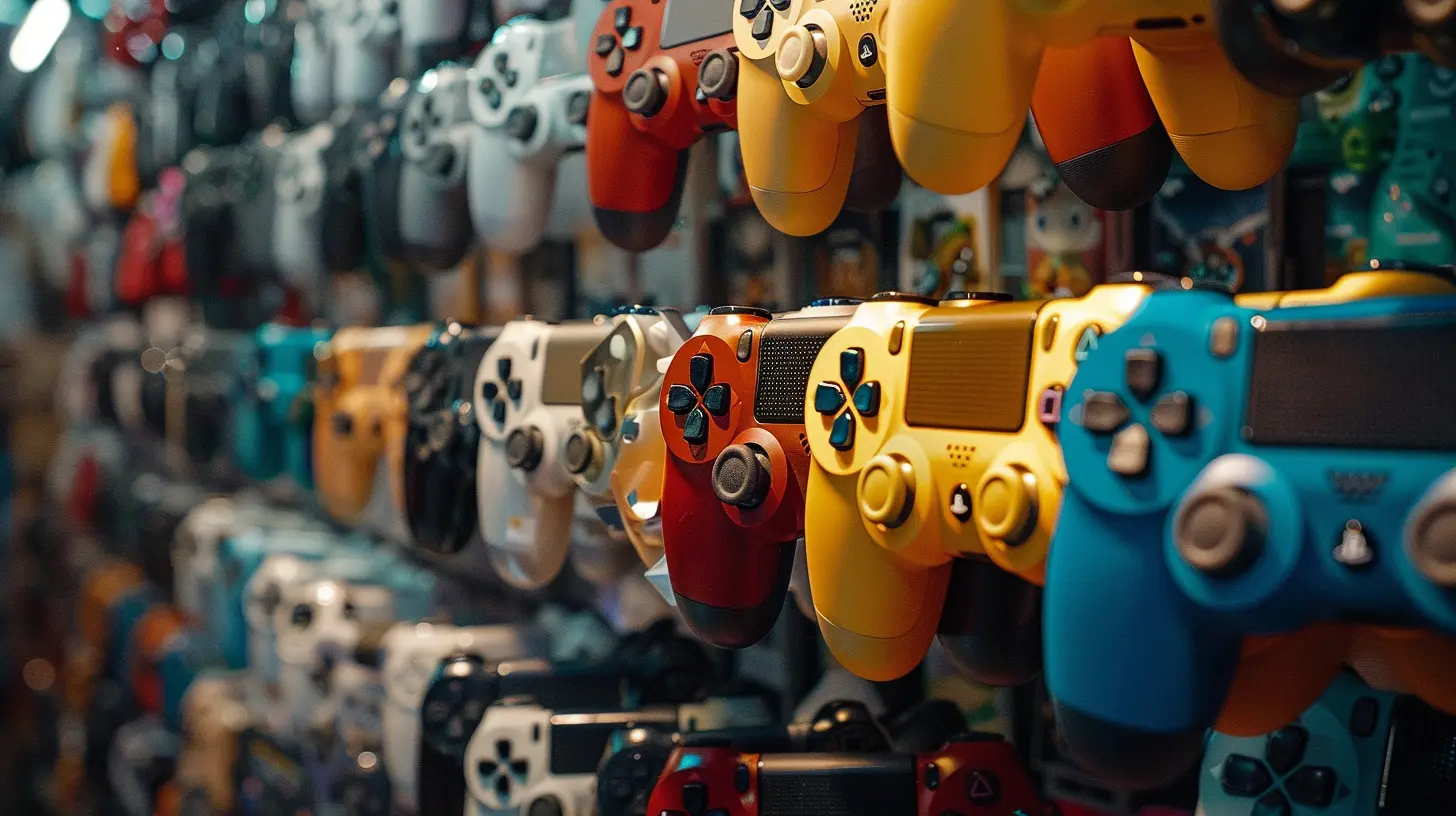
The Problem: Games Are Disappearing (Fast!)
Here’s the cold, hard truth: video games are fragile. Not in the sense that they’ll cry if you tease them—but in terms of longevity, they’re hanging on by a thread. Physical copies of games deteriorate over time, hardware becomes obsolete, online servers shut down, and digital-only games can vanish if the platform hosting them decides to pull the plug.Take the Nintendo Wii Shop, for instance. When Nintendo shut it down in 2019, a huge chunk of games became inaccessible overnight. Imagine waking up one day to find out your Netflix account is gone, and so is every movie or show you paid for—that’s what’s happening to video games. And here’s a scary stat: experts estimate that 87% of classic video games are no longer commercially available. That’s mind-blowing.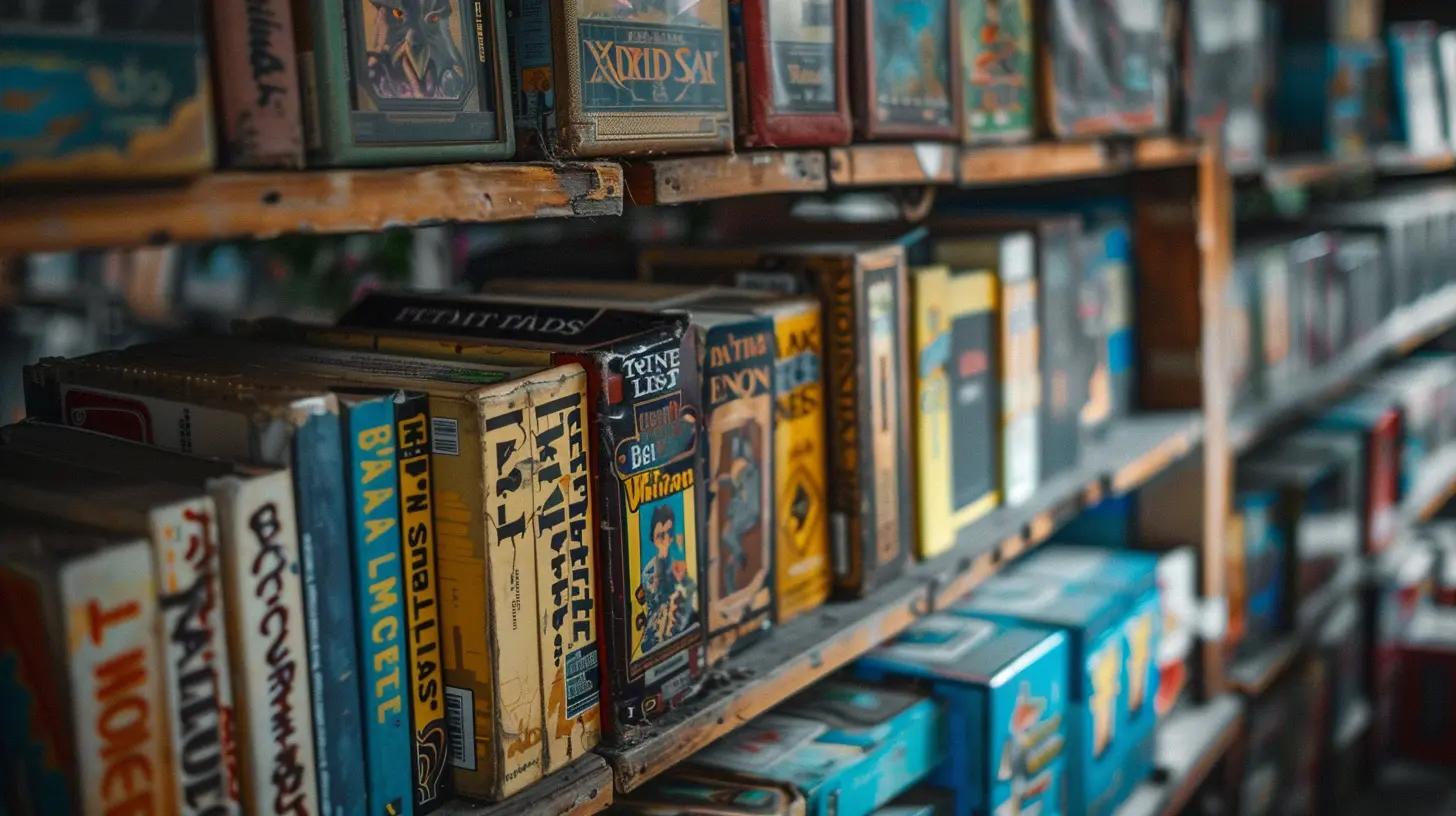
Why the Gaming Industry Isn’t Helping
If you’re wondering why the gaming industry doesn’t just preserve its own history, you’re not alone. You’d think companies would be the first to protect their creations, right? Unfortunately, that’s rarely the case. Many publishers and developers are focused on profits rather than preservation. If an old game isn’t making money anymore, they see little reason to keep it alive.Take "planned obsolescence," for example. Companies know they can sell us their games all over again in the form of remasters, remakes, or subscription services. It’s the gaming equivalent of re-releasing classic Disney movies from the vault—you’re paying for the same thing twice (or three times). That’s fine for a few big-name titles like Final Fantasy VII, but what about the thousands of lesser-known games that will never see this treatment?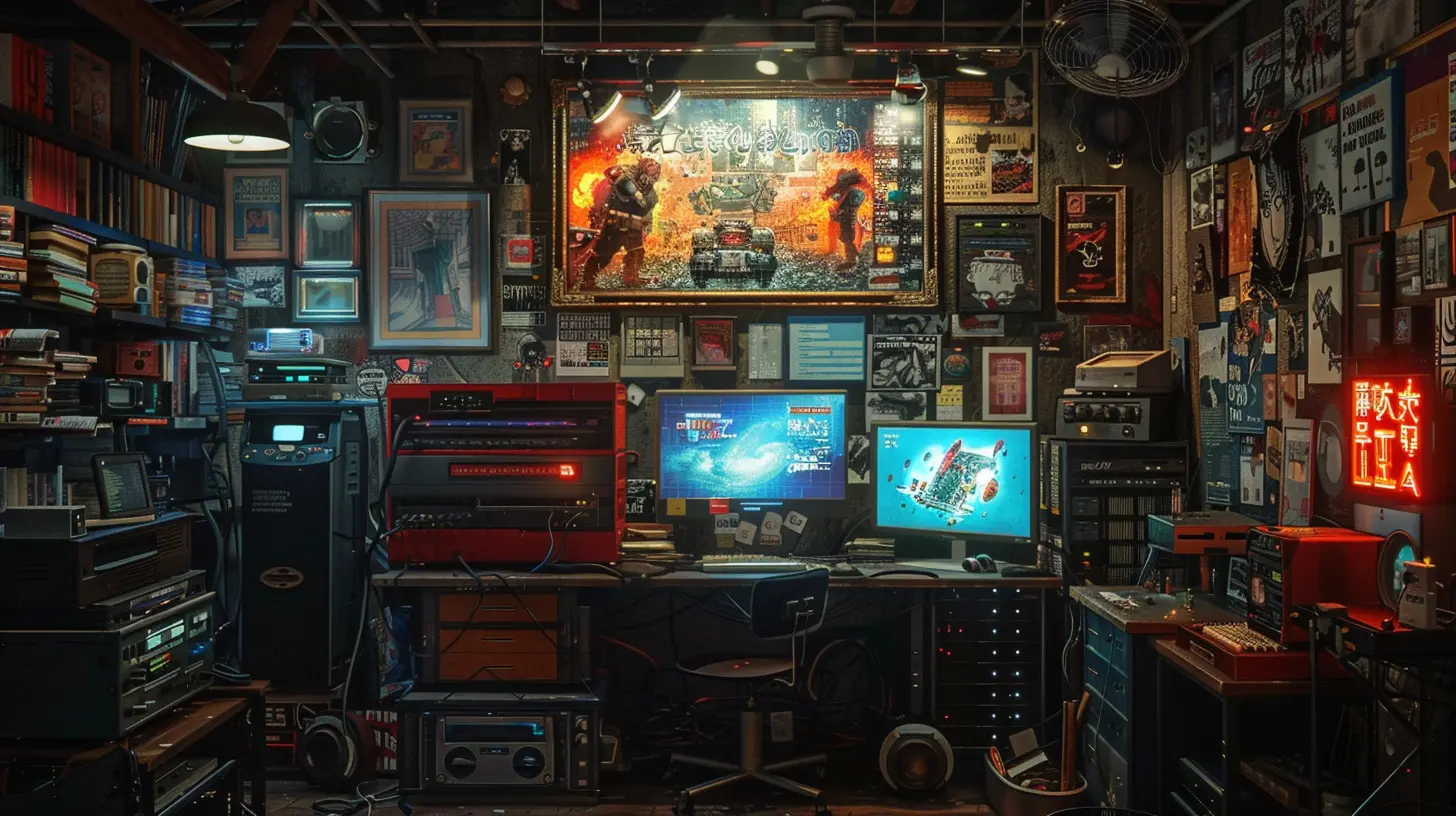
Enter Game Preservation Movements
So, who’s stepping in to save the day? That would be game preservation movements. These groups consist of passionate gamers, archivists, historians, and even some developers who recognize the importance of keeping games alive. Let’s break down how these movements are making a difference.1. Video Game Archives and Libraries
Organizations like the Video Game History Foundation (VGHF) and Museum of Art and Digital Entertainment (MADE) are working tirelessly to create libraries of games, consoles, and related materials. Think of these as museums, but instead of staring at paintings behind glass, you get to play the exhibits. Pretty cool, right?These organizations work to document games, store physical copies, and make sure they’re playable decades down the line. They’re like the Indiana Jones of the gaming world, dodging copyright traps and hardware failures to preserve treasures.
2. Emulation: A Controversial Savior
Let’s talk about emulation. For those who don’t know, emulators are software tools that replicate old hardware, letting you play games from consoles like the NES, Sega Genesis, or PlayStation on modern devices. Sounds amazing, right? Well, it’s a double-edged sword.While emulation is a lifesaver for many games, it’s often caught up in legal issues. Big companies see it as piracy, while preservationists argue it’s the only way to keep games playable. At the end of the day, emulators are keeping games alive that would otherwise fade into obscurity, even if the legality is murky.
3. Fan-Led Efforts
Fans are another powerhouse in the game preservation movement. From creating fan-made patches that make old games compatible with new systems to scanning and digitizing game manuals, fans often go where companies fear to tread. A great example? The “Mother 3” fan translation project. When Nintendo refused to release the game outside Japan, fans translated it themselves, ensuring it reached a global audience.Fans are also creating backups of digital-only games and hosting them on websites, despite the legal risks. It’s like a digital Robin Hood—they’re doing what they believe is right to save gaming history.
Challenges Facing Game Preservation Movements
It’s not all sunshine and rainbows, though. Game preservation movements face some pretty big hurdles. Let’s look at a few of them.1. Legal Roadblocks
Copyright laws are the bane of game preservation. The problem? Most games are still protected by copyright, which means archivists can’t legally distribute or share them without permission. But here’s the kicker: a lot of older games' rights are in limbo. The original developers may no longer exist, and the publishers might not care enough to respond. It’s a tangled web, and it’s holding preservationists back.2. Hardware Decay
Even if you have the original console and game, hardware doesn’t last forever. Cartridges, discs, and even hard drives degrade over time. Plus, it’s becoming harder and harder to find working versions of old consoles. Ever tried hunting down a Sega Saturn that actually works? It’s like searching for a needle in a haystack.3. Funding Constraints
Let’s face it: game preservation isn’t exactly a lucrative field. Most movements rely on donations and volunteer work. Without steady funding, it’s hard to maintain archives, develop software, or advocate for change in the industry.Why You Should Care About Game Preservation
By now, you might be thinking, “Okay, this is all interesting, but why should I care?” Well, let me put it this way: game preservation is about more than just saving old games. It’s about preserving memories, history, and culture.Think about how games have shaped your life—whether it’s bonding with your siblings over Mario Kart, staying up late to beat Final Fantasy, or simply marveling at the artistry of Shadow of the Colossus. Those experiences deserve to be remembered, don’t they?
The Path Forward
So, what’s next for game preservation? It’s clear that the gaming community is passionate about this cause, but long-term success will require more support—both from the industry and governments. Loosening copyright restrictions for preservation purposes, funding public game archives, and embracing emulation are all steps in the right direction.And hey, maybe it’s time for gamers like us to get more involved. Whether it's donating to preservation organizations, spreading awareness, or simply advocating for the cause, every little bit helps. After all, if we don’t fight for gaming’s past, who will?
Conclusion
The rise of game preservation movements isn’t just about saving software—it’s about protecting a piece of history. From dedicated archivists to passionate fans, countless people are working to ensure the games we love don’t fade into obscurity. Sure, there are challenges, but if there’s one thing gamers are good at, it’s overcoming obstacles.So, the next time you load up an old favorite or stumble across a forgotten gem, take a moment to appreciate the efforts that went into preserving it. And remember: every game tells a story, and stories are worth saving.
all images in this post were generated using AI tools
Category:
Gaming CultureAuthor:

Tayla Warner
Discussion
rate this article
1 comments
Lucy Henderson
Game preservation is not just about nostalgia; it’s a vital commitment to safeguarding our interactive heritage. As players and historians unite, we ensure future generations can experience the creativity and culture that shaped gaming. Let’s champion this cause!
September 1, 2025 at 5:07 AM

Tayla Warner
Absolutely! Game preservation is crucial for honoring our past and enriching future experiences. It's essential to keep this vibrant culture alive for generations to come. Thank you for championing this important cause!
